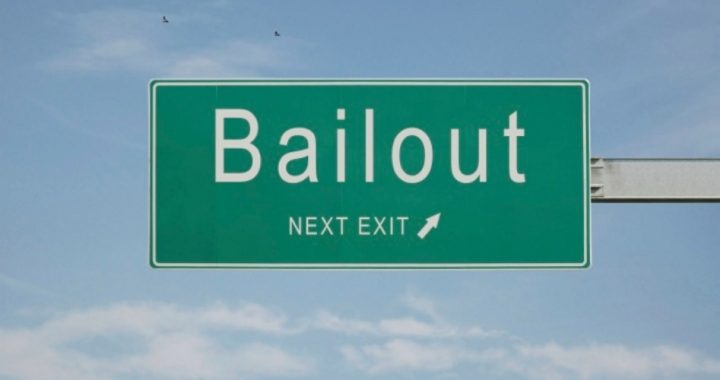
In a remarkable turn of events, union-owned Amalgamated Bank, which had never lent money to a municipality before, has decided to loan Scranton, Pennsylvania, $6 million in order that union members get paid their full salaries. As first reported here, Scranton’s Mayor Chris Doherty ran out of money in June and put everyone, himself included, on minimum wage. The unions protested and won a judgment that Doherty was out of bounds but by then the reduced checks were already in the mail.
A reader of that article made this prescient comment: “What’s the mayor to do? No money in the bank, [he] can’t kite checks … maybe the unions have some sort of slush fund, backup rabbit hole, something…?” The reader was spot on. The mayor’s cutback to minimum wage apparently so angered John Judge, the president of the city’s firemen’s union, who saw his own check reduced from $1,500, after withholding, to just $600, before withholding, that he called some friends in Washington, D.C., for a little help:
We’re trapped in the middle of a political game between the mayor and city council. We’re not the cause of his problem, and we’re not the solution to his problem…
With Scranton and Pennsylvania being such a hot bed for the next election, we want to make sure that they know there’s a Democratic mayor that’s not taking care of his public safety unions.
We know that President Obama and Vice President Biden have been staunch supporters of police and fire, and we want to make sure they were aware of how our unions [are] being treated up here.
Apparently someone took his call, and the following agreement was made: Amalgamated Bank, which is owned by the Workers United/SEIU labor union, is loaning Scranton $6.2 million, at five percent interest, with a three percent origination fee, with the promise that it would be paid back in full by December 15. Included in the agreement were stipulations that 1) all lawyers would get paid, 2) all union members would be paid their full salaries plus the shortfall from July (plus interest) and 3) Scranton would subordinate its own interests in income tax revenues by having them sent directly over to the bank. The bank would take 60 percent of them to pay back the loan, and send the remaining 40 percent back to Scranton. They would then be used by the city to pay union salaries and other administrative expenses.
There was one more stipulation: The state of Pennsylvania would ante up another $2 million — interest free — to Scranton, to be paid directly to Amalgamated, along with a state grant of $225,000, which also would go directly to Amalgamated.
Scranton City Council President Janet Evans said that Judge was involved in all the negotiations intimately from the very beginning. Judge “referred” the bank to Scranton, and helped to secure the loan. He was “key” in the transaction, according to Evans.
Wilson Smith, a bank analyst with Patriot Capital Partners, said a union-owned bank, like Amalgamated, would give special consideration to such a loan request from a municipality, “particularly if a loan may maintain union jobs.”
In what union leaders would no doubt say is an unrelated development, in early August the Democratic National Committee closed its banking relationship with Bank of America, and moved its funds to — Amalgamated Bank.



